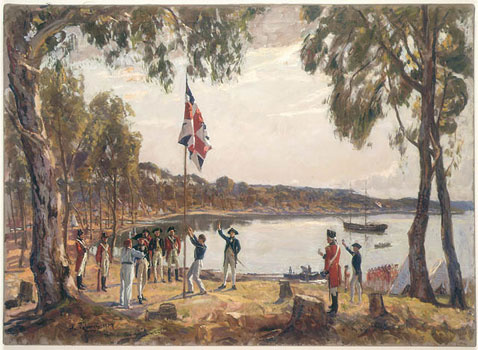"... The significance of this event has slipped in Australia as it moves more and more towards establishing itself as a Constitutional Democracy. ..."Australia is already a Constitutional Democracy. Its a Republic we are moving towards, however, don't mention this to our Monarchists 'cos they'll have a pink fit and break out into Royalist song!
Now, about our Queen's Birthday Honours List - We used to have honours bestowed by the Queen, herself, however one of our Labor Prime Ministers told her to bugger off and we'll have our own AUSTRALIAN Awards.
The Order of Australia is an order of chivalry established by Elizabeth II, Queen of Australia on 14 February 1975 "for the purpose of according recognition to Australian citizens and other persons for achievement or for meritorious service". Before the establishment of the Order, Australian citizens received British honours. The British honours system was a means of rewarding individuals' personal bravery, achievement, or service to the United Kingdom and its remaining overseas colonies. The system consists of three types of award: honours, decorations and medals.
The Queen of Australia is Sovereign Head of the Order while the Governor-General is Principal Companion and Chancellor of the Order. The Governor-General's Official Secretary is Secretary of the Order.
The Order of Australia was established on 14 February 1975 by Letters patent of Elizabeth II, Queen of Australia, and countersigned by the then Labor Prime Minister Gough Whitlam. The original Order had only three grades: Companion (AC), Officer (AO) and Member (AM). On 24 May 1976, the further categories of Knight (AK), Dame (AD), and Medal of the Order of Australia (OAM) were established by the Queen on the advice of Whitlam's successor, Liberal Prime Minister Malcolm Fraser.
Following his 1983 election, the new Labor Prime Minister Bob Hawke abolished the Knight and Dame categories. On 3 March 1986 the Queen co-signed Letters Patent revoking the category of Knight or Dame. Existing Knights and Dames were not affected by this change.
The Founding of Australia, 1788
Now, to get you really confused, we also have an Australia Day Public holiday. Australia Day (previously known as Anniversary Day, Foundation Day, and ANA Day) is the official national day of Australia. Celebrated annually on 26 January, the date commemorates the arrival of the First Fleet at Sydney Cove in 1788 and the proclamation at that time of British sovereignty over the eastern seaboard of New Holland.
Although it was not known as Australia Day until over a century later, records of celebrations on 26 January date back to 1808, with the first official celebration of the formation of New South Wales held in 1818. It is presently an official public holiday in every state and territory of Australia and is marked by the announcement of the Honours List for the Order of Australia and presentations of the Australian of the Year awards, an address from the Governor-General and Prime Minister along with community festivals, concerts and citizenship ceremonies.
The official Australia Day Ambassador Program supports celebrations in communities across the nation by facilitating the participation of high-achieving Australians in local community celebrations. In 2009, 340 Ambassadors participated in 377 local community celebrations. The Order of Australia awards are also a feature of the day. The Australia Day Achievement Medallion is awarded to citizens by local governments based on excellence in both government and non-government organisations. The Governor-General and Prime Minister both address to the nation. On the eve of Australia Day each year, the Prime Minister announces the winner of the Australian of the Year award, presented to an Australian citizen who has shown a "significant contribution to the Australian community and nation", and is an "inspirational role model for the Australian community". Subcategories of the award include Young and Senior Australian of the Year, and an award for Australia's Local Hero.
The date is controversial to some Australians, particularly those of Indigenous heritage, leading to the use of alternate names, such as Invasion Day and Survival Day. Proposals have been made to change the date of Australia Day, but these have failed to gain widespread public


1 comment:
Mind spinning!
Post a Comment